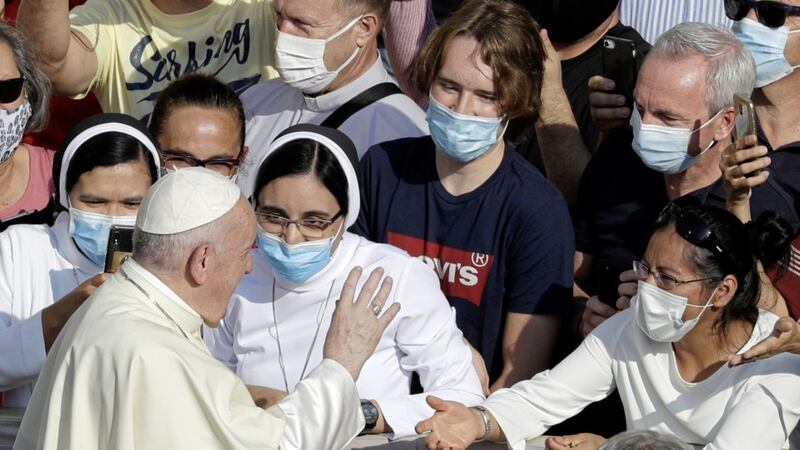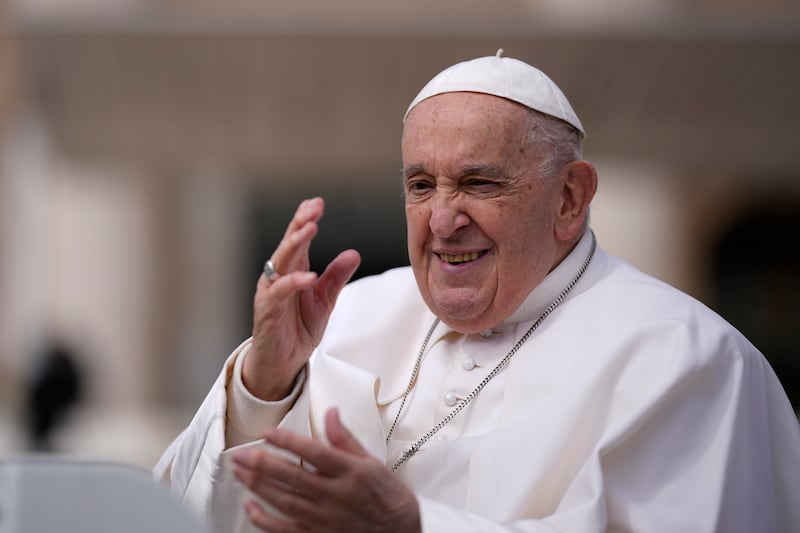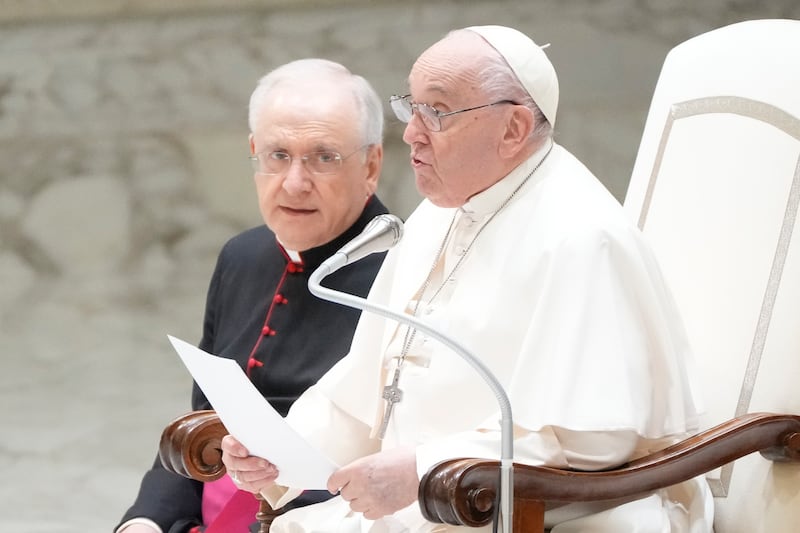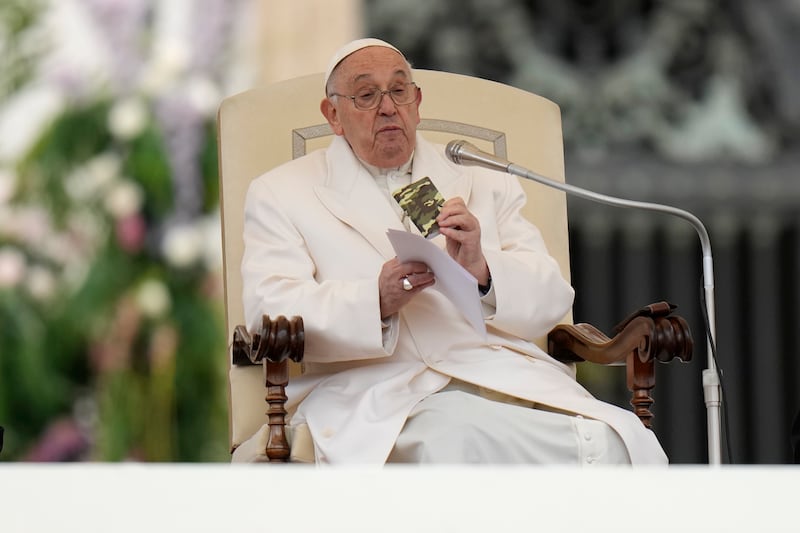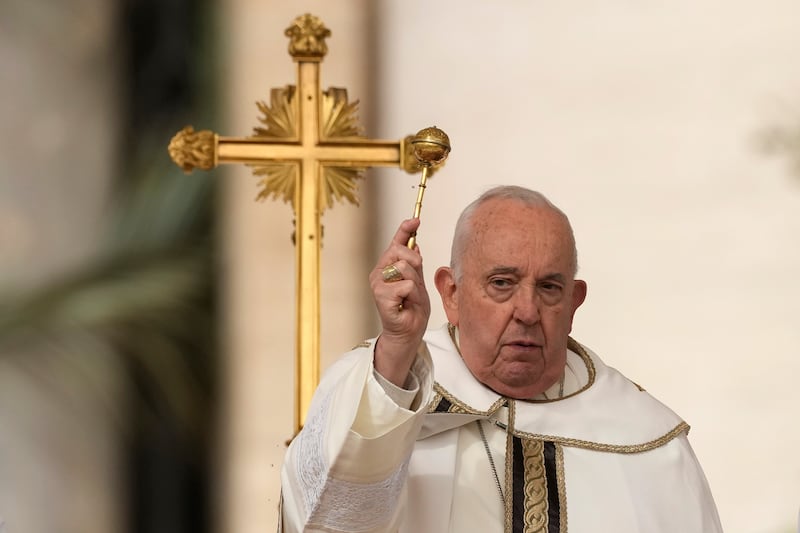When Pope Francis addresses the United Nations General Assembly today, he will do so by video rather than in person; such is the impact of Covid-19 that even the UN and popes have to progress their business by Zoom and FaceTime.
So when the 83-year-old Pope does leave the Vatican in this era of social-distancing, you can be sure it's important.
He will make one of those trips next Saturday when he travels to Assisi in Umbria.
This will be a private visit - "due to the health situation," the Vatican says - but it will have a public aspect.
As well as its undoubted beauty, Assisi is inextricably linked with the saint from whom Jorge Mario Bergoglio drew his papal name.
And although he will say Mass at St Francis's tomb, the main reason the Pope is going to Assisi is to sign a new encyclical, called Fratelli tutti.
St Francis has been an obvious influence on this Pope's teaching, notably in his 2015 encyclical
[ Laudato si'Opens in new window ]
.
Its title was a quote from St Francis and its central theme - the imperative for all peoples to look after creation and to "care for our common home" - also felt very Franciscan.
Similarly, Fratelli tutti draws its title from St Francis.
A literal translation is 'all brethren'; predictably, this has led to accusations that the Pope is deliberately excluding women, though the Vatican has stressed that it is "an encyclical for all brothers and sisters" rather than, as critics contend, the concoction of a bunch of malevolent old misogynists.
An editorial in L'Osservatore Romano, the Vatican newspaper, said that in Fratelli tutti the Pope was writing to "all his sisters and brothers, all men and women of good will who populate the earth: everyone, inclusively, and in no way exclusively".
Though those inclined to seek grievances everywhere won't be convinced, Fratelli tutti will focus on the themes of fraternity and social friendship that have come to the fore in the Pope's teaching since the coronavirus crisis began.
The idea of "common belonging", as the Pope has put it, speaks to our pandemic world, in which so many of us have been able both to help and to rely upon family, friend and neighbour in ways which we may never have thought about before. Or, if we had, perhaps not too deeply.
Fratelli tutti, L'Osservatore Romano explained, will "point to what unites men and women: a necessary affection established between people even if not close blood relatives" and emphasise the need for affection "towards other human beings, regardless of any difference or affiliation".
"Common belonging" might sound a lot like common sense yet it is in contrast to the divisive spirit which disproportionately dominates so much discourse, particularly in social media.

Its impulse is to 'cancel' those who don't hold 'correct' views, as divined by a self-selecting high priesthood.
Far from being 'progressive', it is in fact regressive. Intolerant of dissent and convinced of its own virtue, it looks a lot like a re-run of the Inquisition, Crusades and a litany of other episodes carried out in the name of Christianity.
Where it fundamentally differs from Christianity is in the absence of any concept of redemption, let alone salvation. How does one recover from being 'cancelled'?
Which brings us back to Fratelli tutti. The phrase is drawn from a passage in The Admonitions of St Francis of Assisi: "Consider, fratelli tutti," - 'all brethren' or 'all men and women'... - "the Good Shepherd - to save his sheep, he suffered the passion and the cross."
The Christian story isn't one of cancelling because of sin, but of salvation and redemption through the cross and resurrection.
This is repeatedly described in the bible as good news for "all people" - a universal reach echoed in the Pope's idea of "common belonging", and not found in the dead-end divisiveness of woke identity politics.

